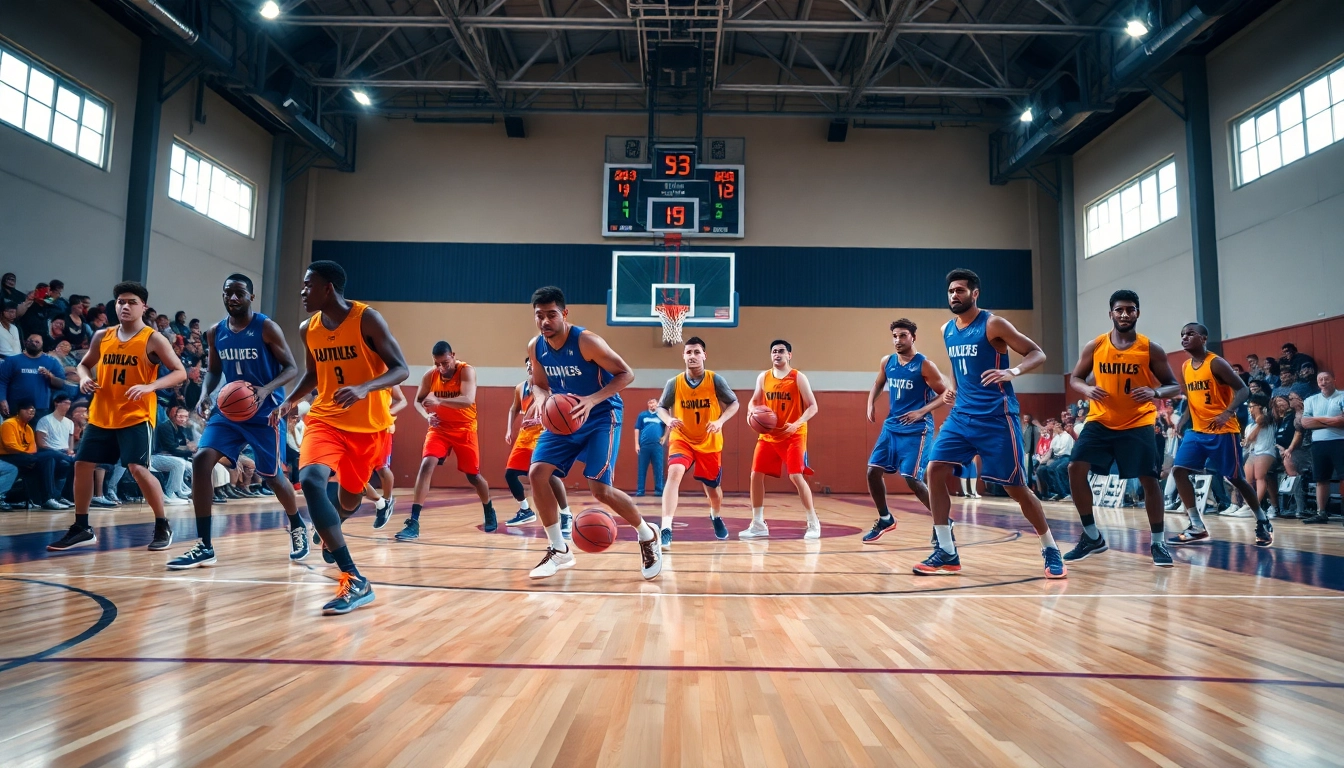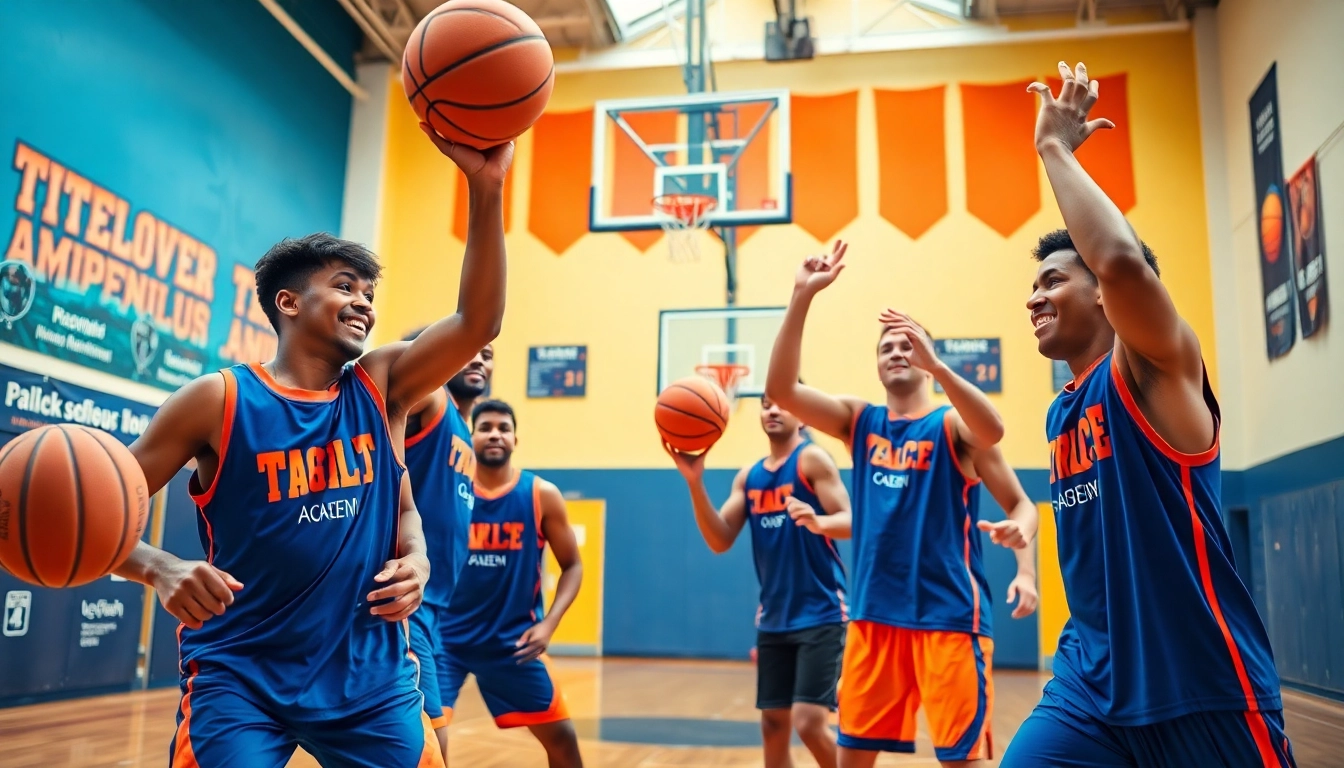Understanding Basketball Training Needs
As basketball continues to grow in popularity, the demand for effective training programs rises significantly. Whether you’re a novice seeking to learn the fundamentals or an experienced player aspiring to elevate your game further, choosing the right program can be key to your success. To match your commitment and aspirations with an appropriate training program, it’s essential to explore your personal training needs, skill levels, and the specific goals you want to achieve. In this comprehensive guide, we’ll discuss the best basketball training programs available today, highlighting various paradigms that cater to different player needs.
Assessing Skill Levels for Optimal Program Selection
The first step in selecting an effective basketball training program is assessing your current skill level. Players typically fall into one of three categories: beginner, intermediate, and advanced. Recognizing which category you belong to informs your training path significantly. Beginners should focus on foundational skills such as footwork, dribbling, and basic shooting techniques. In contrast, intermediate and advanced players may require specialized training to refine their skills and game strategies.
Identifying Personal Goals: From Amateur to Pro
Your goals will define your training needs. Are you aiming to make a high school team, play at a collegiate level, or pursue a career in professional basketball? Each goal requires a different training approach. If you’re pursuing collegiate or professional aspirations, consider programs that offer an in-depth curriculum with access to professional trainers, strategic coaching, and competitive practice environments.
Common Challenges Athletes Face in Training
Despite varying skill levels and goals, athletes often face similar challenges during training. These can include lack of motivation, injury risks, difficulty retaining learned skills, or a suboptimal training environment. Addressing these obstacles requires programs that are adaptable and can support athlete mental and physical growth through structured interventions.
Types of Basketball Training Programs
Understanding the different types of training programs available is vital to making an informed choice. Training methods can significantly impact learning and skill acquisition, so being aware of what’s available can help in selecting the perfect program.
Individual vs. Group Training Sessions
Individual training sessions offer personalized attention, allowing athletes to focus on specific areas of improvement. Such programs are valuable for targeting individual weaknesses, and training can be tailored to fit the player’s schedule and specific needs. Conversely, group training sessions offer the benefits of teamwork and competition, fostering camaraderie and providing a platform for players to learn from each other. Both methods have their advantages, and the choice often depends on personal learning preferences.
In-Person Clinics and Camps Overview
In-person camps and clinics are excellent for immersive learning experiences. These programs usually take place over a fixed period and involve intensive training led by experienced coaches. Athletes can benefit from real-time feedback, high-level competition, and the chance to train alongside others who share similar aspirations. Noteworthy programs like the IMG Academy basketball camps focus on developing talent through structured drills, skill assessments, and live games, providing a comprehensive skill development environment.
Online Programs and Their Benefits
As technology advances, online basketball training has emerged as a flexible alternative to traditional training. These programs often come with video tutorials, skill assessment tools, and instructional courses that athletes can access anywhere. Online training is especially useful for those who do not have access to in-person coaching or prefer to practice at their own pace. Platforms like Pure Sweat Basketball provide extensive online modules for players to develop their basketball IQ, fundamental skills, and mental toughness.
Key Features of Effective Training Programs
Not all training programs are created equal. Certain key features distinguish effective programs from the mediocre ones. Understanding these features will inform your decision-making process as you evaluate various training options.
Personalized Coaching Approaches
Effective basketball training programs emphasize personalized coaching approaches. Coaches who take the time to understand individual players’ strengths and weaknesses can more effectively tailor training to meet those needs. Personal feedback and ongoing communication with trainers enhance the learning experience, ensuring that players feel supported as they work towards their goals.
Emphasis on Skill Development and Mastery
Skill development is at the heart of any successful basketball program. Excellent programs systematically break down skills into manageable components. Coaches should focus on technique, repetition, and mastery of skills before progressing to more complex maneuvers. Training that includes drills for shooting, ball-handling, and defensive strategies ensures that players develop competence and confidence.
Integrating Strength and Conditioning
Basketball is a physically demanding sport, and integrating strength and conditioning into training programs is essential. Conditioning not only builds muscle strength and stamina but also helps prevent injuries. Programs that incorporate strength training tailored for basketball players can improve stabilizer muscles, agility, and overall athletic performance. For instance, programs like Pro-Fit Basketball offer comprehensive packages that include strength training elements alongside basketball-specific skills training.
How to Choose the Right Basketball Program
With so many basketball training programs available, choosing the right one can be daunting. Following a systematic approach can streamline the selection process and lead to a more fulfilling training experience.
Finding Programs with Proven Track Records
When searching for a training program, prioritize those with proven results. Look for programs that have helped athletes achieve their goals—evidence of past successes, including testimonials of former players who have seen tangible results, enhances a program’s credibility. Programs like Evolution Basketball Training in Virginia and Maryland boast a strong track record, having developed over 500 college players.
Evaluating Reviews and Testimonials
Reviews and testimonials are invaluable resources when selecting a program. They reflect the experiences of previous participants, providing insights into training quality, coach effectiveness, and overall satisfaction. Search for platforms and forums where players share their experiences to build a comprehensive picture of what each program offers.
Determining Compatibility with Personal Learning Styles
Every player has a unique learning style, whether visual, auditory, or kinesthetic. Selecting a program that aligns with your preferred methods of learning ensures that you receive instruction in the most effective manner. For example, visual learners may benefit more from video-based training, while hands-on learners might excel in clinics that emphasize interactive drills.
Tracking Progress and Measuring Success
Once you’ve chosen a training program, tracking progress is essential in ensuring continuous improvement and achieving long-term goals. Here are some methods to monitor your success.
Setting Realistic Milestones and Goals
Establishing realistic milestones helps maintain motivation and provides measurable targets. Short-term goals, such as enhancing shooting accuracy or improving dribbling speed over a few weeks, ensure that you are consistently working towards your larger aspirations. Regularly assess your progress to stay aligned with these goals and adjust your training accordingly.
Tools for Monitoring Skill Improvement
Incorporate various tools to track your skill development. Utilize mobile apps like Coach’s Eye or Hudl to analyze gameplay, gather statistical data, and provide visual feedback on your performance. Regular video analysis can uncover trends in your skills that may require additional focus.
Adjusting Training Approaches Based on Performance Metrics
Be flexible with your training approach. Use the data collected to identify areas needing improvement. If shooting percentages are lower than expected, consider additional shooting drills or nutrition adjustments to maintain energy levels during practice and games. Adapting your routine ensures that your training remains effective, engaging, and geared towards your evolving needs as a player.



